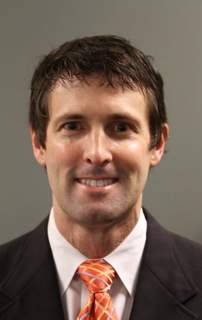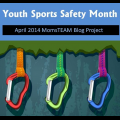In recognition of April as National Youth Sports Safety Month, MomsTeam asked 30 experts in 2012 to write a blog answering two questions: first, how or why did they get into their field, and second, how have they made a difference in the life of a youth athlete in the past year.
Today, we hear again from Dr. David Geier, an orthopaedic sports medicine surgeon and Director of Sports Medicine at the Medical University of South Carolina in Charleston, South Carolina.
By C. David Geier, Jr, MD
Why did I get into my field?
Sports are an enormous component of the lives of young people in this country. For some of them, it is their chance to gain a college scholarship or potentially play professionally. For the vast majority, it is an opportunity to participate in an activity with many of their friends.
Whatever the motivation, kids are frequently devastated when an injury occurs that prevents them from playing their sport. As an orthopaedic surgeon, I perform complex arthroscopic surgeries for many of these injuries. And I love hearing a player on a youth sports team or her parents tell me that they are so happy to return to play.
In recent years, my passion has shifted somewhat toward efforts to prevent some of the injuries young athletes suffer. I give talks to youth teams and help our sports medicine program lead injury prevention programs. I try to educate young athletes and their parents and coaches about the risks of injuries in youth sports and ways to try to prevent them. 
One of my orthopaedic surgery partners, who is not a sports medicine specialist, asked me in all seriousness once why I was teaching an ACL injury prevention program when I got paid to treat those injuries surgically.
I was stunned.
I believe that part of our duty as physicians, athletic trainers, physical therapists, and other health care professionals involved in sports medicine is to prevent sports injuries, not just treat them. If we can keep even a few young athletes on the field and out of the training room, doctor's office, or operating room, we have done a remarkable service.
How have I made a difference in an athlete's life?
Andy is a high-school senior at the one of the largest high schools in South Carolina. As an 8th grader, he made the high school's JV football team, but he dislocated his shoulder in one of his first games. When I diagnosed him with shoulder instability and a large labral tear, he and his family decided he would have surgery. Despite his young age, Andy worked very hard after surgery and throughout his six-month rehab. While he did return to football, he later switched his focus to lacrosse.
In each of the four years Andy's lacrosse team had been in existence, the team nearly won the state championship, but never achieved that goal. Before Andy's senior season, his team trained all year to try to finally break through and win the title.
Unfortunately, before preseason started, Andy dislocated the shoulder opposite to the one injured playing football. As any athlete and rising senior would be, Andy was devastated. He and his family had several long discussions with me about treatment options. Surgery and the subsequent physical therapy would likely cost him at least all of the preseason and part of the regular season. On the other hand, without surgery, knowing that he again had a large labral tear, he knew that he risked the shoulder dislocating again. Andy and his family made a very difficult decision to undergo arthroscopic shoulder stabilization.
Andy is like so many dedicated athletes at all levels. He was determined to overcome his injury and surgery. He drove 45 minutes two or three days a week for six months to rehab with arguably the best shoulder physical therapist in the area. He had his heart and mind set on playing in his final season and helping his team win the title.
Five days ago, Andy and his team achieved their goal, winning the state championship. "When I found out I had to have surgery I was devastated," Andy told me. "I never thought I would be the player I was before surgery. But after rehab I came back stronger than ever. It felt great to just compete, and it felt incredible to win state."
Being able to help Andy achieve his personal goal and goal for his lacrosse team was gratifying and shows the effect we have on the lives of young athletes.
Dr. Geier is an orthopaedic sports medicine surgeon at the Medical University of South Carolina in Charleston, South Carolina and serves as the Director of MUSC Sports Medicine. He currently serves as the Chairman of the Public Relations Committee for the American Orthopaedic Society for Sports Medicine.
He received his bachelor's degree in economics from Wake Forest University and his medical degree from the Medical University of South Carolina. He completed his orthopaedic surgery residency at the Campbell Clinic, followed by an orthopaedic sports medicine fellowship at Washington University in St. Louis. Dr. Geier currently serves as the Chief Tournament Physician of the Family Circle Cup women's professional tennis tournament and is the head team physician of the Charleston Battery professional soccer team. He also acts as the physician to a number of high schools and competitive sports teams and leagues in the area.
Dr. Geier also frequently writes for and maintains a sports medicine blog, which promotes sports injury treatment, wellness, and prevention information to athletes, parents, coaches, and health care providers, and records a weekly sports medicine podcast.



















